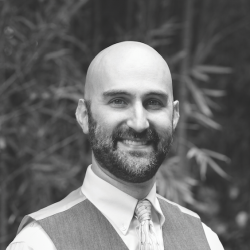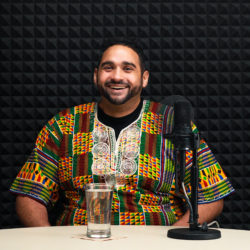
Repentance Across History
A decade ago, I investigated the practices of confession and reconciliation in evangelical churches.1 While Christian churches have always held that confession of sin is central to entering into and maintaining new life in Christ, they have not always agreed on what confession entails, or how central it is to our faith practices. Arising from the Jewish faith, the church inherited a rich tradition of penitential piety and practices. Given the covenant God established with Israel and the law that maintained it, practices such as fasting, sackcloth and ashes, and supplication—often accompanied by sacrifice—were common, both individually and corporately. At the core of these practices was the belief that a price must be paid for wrongdoing, and that the act of penance must demonstrate a change of heart.
We find the first evidence of rites of penance in the church around 200 CE. Up to this point it was assumed that you had confessed your sins before baptism, where those sins were then washed away (Acts 22:16). But African theologian Tertullian, in his treatise On Repentance, describes baptism and repentance (or penance) as two planks to which a person clings—to survive the shipwreck of sin and to arrive at the port of God’s forgiveness. Tertullian uses the term exomologesis, or public penance (or confession).
Further, the Lord’s Supper maintained one’s state of grace, as the Table was seen as reestablishing a right relationship with God and healing us from our sins. The “kiss of peace” which often preceded the Lord’s Supper was also seen as an agent of reconciliation. This actual kiss, mouth on mouth, was seen as the sharing of the Spirit (breath) between sisters and brothers in Christ. These practices brought those who had sinned back into communion with God and the church.
But these were practices for “ordinary” sins. Extraordinary sins—murder, denying one’s faith, or adultery—required more rigorous cleansing. Tertullian describes a more public, and often humiliating, penance. These penitents were excluded from the Lord’s Supper (excommunicated) and denied its healing effects until they demonstrated genuine contrition. This public (canonical) penance was considered a second conversion and, like baptism, was only practiced once in one’s lifetime—two strikes and you’re out. This is reflected in that a single word in Greek, metanoia, is translated both as conversion and repentance (literally “change of mind”).
These public practices slowly gave way to more private practices in Western medieval churches. Here monks, nuns, and priests prescribed acts of contrition for individuals to pay the price for their sins. These practices were not imposed on the people but were actually sought by the laity. Over time private penance overtook public penance as the norm, and its practice and meaning continued to evolve. Eventually “confession” was declared one of the sacraments of the Roman Catholic Church. Penance also became less personal, as people were allowed to recruit others to perform the prescribed acts of contrition with them, to share the cost of their sin. (The practice of indulgences, where one paid to have masses said on their or another’s behalf—living or dead—emerged during this time and became a touchstone of the Reformation.)
One can see both continuity and discontinuity in these practices over the past four centuries across Christian churches. Much has remained in current Catholic piety and practice, although in the 1970s, the Roman Catholic Church officially replaced language of “confession” with “reconciliation.” While frequently in evangelical churches, confession or penance is given little emphasis in ritual life. Few practice any expression of confession corporately, and then only occasionally. However, the research I alluded to at the beginning of this essay does offer examples that prove the rule, such as evangelical churches with various kinds of ministries of reconciliation. Whether through one church’s offering guidance on conflict resolution or another church’s ministry to sex workers—which offered hope through new life in Christ and new identity in society—different expressions of the need for metanoia in the Christian life continue to show themselves in the church.
It is the nature of human rituals to change in both their execution and interpretation over time. But the history of our faith asks if we still believe in the necessity of metanoia, and if so, how do we invite people to express that belief and participate in practices that form them into that understanding? If we take seriously the vocation we have been given in our baptism to be both reconciled to God and others and to be ambassadors of that reconciliation (2 Cor 5:18), then that should inform our personal and corporate practices of our faith.
1 Todd E. Johnson, “Ambassadors of Reconciliation? Observations and Lessons Learned from Evangelical Churches,” Liturgy 23, no. 4 (2008): 19–25.
+ Todd Johnson, William K. and Delores S. Brehm Associate Professor of Worship
Even though I have been studying and thinking about culture for more than three decades, I am still constantly amazed to witness how culture all around us—locally and globally—changes so rapidly and impacts people’s lives so greatly. Most individuals I see in private practice or in ministry struggle with problems stemming from cultural conflicts—whether dealing with romantic partners, family, church, or work settings. I anticipate problems will only intensify in the future unless people learn to tackle the clash of cultures and underlying confusion of values.
Because culture largely operates implicitly, I believe it is important to raise awareness— whether I am counseling, teaching, or speaking publicly—in order to help people explore the underlying issues. On a variety of matters, people in conflict frequently ask me which side is right or wrong. Expecting to hear politically correct, neutral responses, they are quite surprised to hear me say both sides may be wrong. This is not a ploy to simply gain attention, but to encourage critical examination of sin and dysfunction not only at the individual and family level but also on a cultural and societal level. As much as there are strengths and riches to celebrate in many traditions, there are also shortcomings and ills.
Cultural sin is not popular to discuss. However, what is considered to be culturally normative may not reflect values consistent with God’s kingdom. There are many sins of culture that could be named, but one that poses the greatest threat to the church today, I believe, is individualism. The culture of individualism, where people come to expect their desires to be catered to and their personal preferences to be put above others, has resulted in the erosion of community. As Robert Bellah and his colleagues have described in the Habits of the Heart, since the modernist movement, the traditional religious community has been swept by the tide of private lifestyles and faith. The church needs to repent for conforming to the world more than transforming to reflect what Christ’s sacrificial love has done for us and is calling us to be as a caring community.
+ Jenny Pak, Associate Professor of Psychology
Repenting of Colonialization
Before the church can move forward with the mandate to make disciples of all nations, it must confront its past record of mission in the context of colonialism and racism. When it does so honestly, it will find cause for repentance before it can more rightly witness to Christ to the ends of the earth.
The churches of the West have claimed great success in world evangelization through a global missionary movement over five centuries. This initiative was inextricably linked with the expansion of Europe from 1492 when Columbus arrived in the Americas. Successive European empires—Dutch, French, and British—followed Spain and Portugal until Europe destroyed itself. The US—also led by people of European descent—then emerged as the global superpower. This is not to say that contemporary world Christianity is the direct result of the Western colonial enterprise—that would denigrate the faith of Christians in other parts of the world, ignore local Christian movements, and neglect precolonial forms of Christianity. However, we cannot ignore the complicity of mission with colonialism and the spirit of that age. This was not a secret: the landmark World Missionary Conference in Edinburgh in 1910 took for granted that there was a hierarchy of races, and it published an extensive report on the relations between missions and imperial governments. Few missionaries in the colonial period challenged racism and white supremacy. Still fewer criticized the colonial project in which the land, bodies, and resources of other peoples were appropriated by Europeans.
Western Christians today do not yet fully acknowledge the extent of the harm done to colonized peoples and to the name of Christ by this complicity. Or the Western Church insulates itself from the past and avoids repentance by disowning the colonial missionary enterprise. But even though churches admit their agents made mistakes then, they may fail to recognize that the sin that caused this complicity also infects their church life and theology today.
The continuity between the world of today and the European imperial period is often denied because the US supported decolonization and development after World War II. But that does not necessarily mean today’s Western missionaries are free of the paternalistic and racist attitudes that infused colonial mission. Today Western Christians still build schools, serve in hospitals, and offer other forms of help to poorer Christians without always considering the colonial baggage of these activities or the reasons why those Christians are poor in the first place. While its churches are for the most part racially segregated, US missions will continue to be tainted by racism, which is the most insidious aspect of the complicity of missions with European colonialism.
We live in a wounded world, and much of that hurt has been inflicted by predominantly Christian nations with powerful churches. Before we imagine a hopeful future, white Christians must examine the past and repent because churches celebrated evangelistic success without challenging injustice. We must repent of the sin of imagining the kingdom of God as the outworking of European supremacy. And we must examine our theology to root out the wrong attitudes to people of other races, ethnicities, traditions, cultures, and religions that are embedded within it, asking the Lord, crucified and risen, for forgiveness.
+ Kirsteen Kim, Professor of Theology and World Christianity and Associate Dean for the Center for Missiological Research
Understanding repentance as a corporate experience of faith is a necessary aspect of daily spirituality. For instance, when observing what I understand of the evangelical church in the world throughout its history, I see many things to celebrate, but I also feel deep regrets. And the urgent and proper response seems penitence—on my own behalf and on behalf of many that have come before me.
As I teach about Christian responses to global issues of concern related to children, my students are often surprised to discover that repentance is a first step. We naturally expect that changing the evils of the world is an outward-facing, finger-pointing exercise. Instead, I’ve found that effective responses only come when we first humbly deal with our individual and corporate culpability. For example, a global concern I am passionate about is the problem of child labor—specifically in the chocolate industry.
What many in Europe and North America don’t know is that much of the cocoa used in our chocolate is produced by child labor—often involving children working as slaves. In worst cases, children are trafficked across borders in West Africa to work during cacao harvesting season, when they toil many hours, using dangerous equipment, isolated from family and friends, and are fed only the most meager rations. Many never taste the chocolate their work produces. And most have little chance of getting a better job with decent pay at any point in the future.1
This isn’t new news. It’s been an open secret for decades. Almost 20 years ago, the largest manufacturers (Hershey, Mars, and Nestle) committed to eliminating the worst forms of child labor in their production efforts, but all failed to fulfill those pledges.2 They claimed it too difficult to accomplish the controls necessary. Yet during that period they saw no reduction in profit margins. In short, there is no progress without incentive to change.
Here’s where we come in. It’s easy to point fingers. Why have the chocolate companies or Western governments not corrected this injustice? But this isn’t how capitalism works. No matter how badly we want the right thing done, ethical practices will not be ensured without significant financial pressure. So we need to start pointing at ourselves. What have we done to change our consumption patterns to impact this evil? Have we lulled ourselves into thinking this problem has been solved? Our urgent response must be to confess—to confess our apathy and complicity in a system that freely abuses children. And we must repent.
For starters, we might consider buying only Fair Trade Certified chocolate. No longer exclusive to specialty stores, Fair Trade chocolate is now widely available. It may be more expensive, but given that increased prices help ensure that living wages are paid to adult harvesters, we might consider that small cost a donation to the lives of West African children.
Or perhaps we can—and I know this sounds extreme—stop consuming chocolate entirely. Why not consider giving up chocolate as an expression of repentance until the chocolate companies fulfill their promises? While a handful of Christians making this choice is unlikely to make a difference, I wonder whether a larger body of us might see it as a necessary step in pursuing justice for the least of these, and as a righteous expression of shared, corporate repentance.
1 Food Empowerment Project, “Child Labor and Slavery in the Chocolate Industry—Food Empowerment Project,” 2019, https://foodispower.org/human-labor-slavery/slavery-chocolate/.
2 P. Whoriskey and R. Siegel, “Hershey, Nestle and Mars Broke Their Pledges to End Child Labor in Chocolate Production,” Washington Post (June 5, 2019), https://www.washingtonpost.com/graphics/2019/business/hershey-nestle-mars-chocolate-child-
labor-west-africa/.
+ Dave Scott, Assistant Professor of Intercultural Studies and Children at Risk
God is good, all the time. For me, this is a truth worth turning to my neighbor to say—especially when I’m burdened by ways that the church has defamed the name of Jesus. Repentance is a core biblical theme. The first imperative uttered by Jesus in the Gospels was “repent” (Mark 1:15). We as the church have much to repent of: racism, misogyny, homophobia, xenophobia, imperialism, colonialism, materialism, and triumphalism—to name a few. Thankfully, there have been significant movements within progressive evangelical contexts to denounce many of these idols and call the church to biblical repentance. But speaking as a Christian significantly formed by left-leaning evangelicalism, I sense a growing need for repentance in our tribe as well.
There is a continuously growing constituency that claims the name “Christian” yet denies that the Bible is God’s divinely inspired Word, perfect in all that it teaches, and that Jesus is the only way, truth, and life. From a historical perspective, the phenomenon of people claiming to be Christian yet viewing the Bible as fallible and espousing a pluralistic view of salvation is a 19th-century, Western innovation, alien to the majority of Christian history. While so many of these people are characterized by a deeply Christlike concern for justice for those on the margins—one of the core biblical traits often lacking in many conservative evangelicals—it is sad that a love of justice in many cases is drawing people away from Jesus. To illustrate this problem: the list of Christians in my life who would join me both to protest the acquittal of police officers who killed unarmed Black people and to go out in the streets to evangelize is growing rapidly smaller. Typically, Christians who are down with one aren’t down with the other. We’ve either reduced Christian witness to a false binary between truth and justice, or we rationalize our neglect of one due to examples of poor implementation by others.
We must not empower colonial, patriarchal, and imperialist aberrations of Christianity to the point of allowing them to ruin Jesus for us. God is good, all the time. The church isn’t, but God is. The Samaritan woman at the well had been burned by organized religion, yet she was able to push through false binaries in order to repent from her sin and testify to the gospel of Jesus Christ in spirit and in truth (John 4:1–42). African slaves who were stolen and tormented in the name of American Christianity yet understood the distinctiveness of the true gospel as they sang, “Old Satan’s church is here below; up to God’s free church I hope to go.” Our pursuit of justice and human dignity should not weaken our commitment to scriptural authority, theological orthodoxy, and spiritual piety—indeed, these things are inseparable. As we continue to repent of our complicity with systemic oppression, let us also repent of our pluralistic humanism that has placed the flourishing of people as the end in and of itself of our theology, worship, and ministry. Jesus is the author of justice, the only name under heaven by which people can be healed, our ever-present help in times of trouble, and is worthy of all praise, honor, and glory.
+ Vince Bantu, Assistant Professor of Church History and Black Church Studies
오전6시50분. 여전히 졸린 눈으로 연구실 책상 앞에 앉아 저를 응시하고 있는 두 그림을 바라봅니다. 하나는 마틴 숀가우어의 안토니의 유혹이고, 다른 하나는 램브란트의 탕자의 귀환 입니다. 분주한 하루를 시작하기 전, 이 두 그림은 저를 회개하는 삶의 리듬에 주목하도록 이끕니다.
21세기를 사는 현대인들은 좀처럼 “죄”라는 용어를 사용하지 않습니다. 약함, 위기, 실수 등으로 대체된 죄라는 용어는, 세속 사회에서는 그저 법정 용어에 불과할 뿐입니다. 불행하게도 이같은 현상은 우리의 교회 안에서도 고스란히 나타나고 있습니다. 감정을 고조시키는 찬양의 열정과 멀티미디어의 세련됨은 현대 예배를 훨씬 역동적이게 해 주고 있지만, 거기에는 좀처럼 죄의 고백을 위한 자리를 찾아보기 어렵습니다. 죄의 고백은 종종 생략되거나, 기껏해야 다음으로 이어질 순서들을 위한 기계적 절차에 불과합니다. 죄인됨과 참회는 이제 먼지 묻은 상품이 돼버렸습니다.
영성의 본질적인 문제가 죄의 문제라고 할 때, 회개는 기독교 영성의 핵심이라고 할 수 있습니다. 회개는 본향을 향한 여정입니다. 그것은 하나님께로 돌아가는 것입니다 (신 4:29-31, 마4:17). 회개는 구원이라는 열매를 쟁취하기 위한 인간의 노력이 아닙니다. 회개의 주도권은 전적으로 하나님께 있습니다. 회개는 인류를 향한 하나님의 열망에 대한 답입니다. 탕자의 비유의 진정한 주인공이 기다리는 아버지이신 것처럼, 하나님 은혜의 그 넓은 품이 우리의 귀향을 주도하는 것입니다.
회개는 일회적 경험이 아닌, 우리의 전생애를 통한 지속적 훈련입니다. 회개는 단순히 후회하는 마음이 아니며, 지성과 관점의 변화에 대한 것입니다. 회개하는 삶은 나를 중심으로 돌아가는 세상이 아닌 하나님과 이웃을 중심으로 돌아가는 삶에 눈뜨게 합니다. 나의 번뜩이는 성과들이 아닌 나의 고약한 죄악에 관심을 가질 때, 그것은 결코 후퇴를 의미하지 않습니다. 오히려 회개를 통해 하나님의 이야기 속의 일부인 나를 되찾음으로 나 자신의 현재와 미래는 새롭게 조명 됩니다. 회개는 소소한 나의 죄악들에 양심의 가책을 느끼는 일에 매몰되어 사회적 악과 불의에 눈멀게 하지 않습니다. 회개하는 삶은 나의 시대의 죄악들에 깨어 더 민감하게 함으로, 이 시대의 구조적 악과 거기에 고통받는 약자들을 더 선명히 바라볼 수 있게 합니다.
회개를 위한 가장 좋은 교재는 외부에 있지 않습니다. 가까이 들여다 보면, 그것은 모두 나의 내면에서 발견할 수 있습니다. 종교적 소비주의와 나르시시즘에 물든 현대 사회의 어느 길모퉁이를 돌다 보면, 어느새 죄인된 나의 모습에 대해 기억상실증에 걸리기 쉽습니다. 매일의 삶에서 자신일 성찰하는 일, 즉 소셜 미디어에서 사람들로부터 지지를 받는 것을 기뻐하기보다 골방에 들어가 나의 죄악된 마음, 생각들, 말, 행위들을 하나 둘 하나님 앞에 내려놓는 일이 오늘 나의 삶에서 필요합니다. 죄악과 분투하는 안토니와 남루한 모습으로 아버지 품에 안긴 탕자의 뒷모습이 이 글을 쓰는 저의 시선을 다시금 사로 잡습니다.
6:50 a.m. As I sit at my office desk with sleepy eyes, two pictures stare at me: One is Martin Schongauer’s Temptation of Antony and the other is Rembrandt’s The Return of the Prodigal Son. Before starting my busy day, these two pictures lead me to pay attention to the rhythm of repenting life.
People living in the 21st century seem rather reluctant to use the word “sin.” In a secular society, the word, which is often replaced by such words as weakness, crisis, or error, is just a juridical term. Unfortunately, the same phenomenon is seen in our churches today. Emotional enthusiasm and sophistication of multimedia make modern worship much more dynamic, but there is not much place for confession of sin. Confession of sin is frequently omitted, or at best, is a mechanical procedure for the orders that follow. Sinfulness and penitence are becoming obsolete products.
If the essential problem of spirituality is the problem of sin, repentance is at the heart of Christian spirituality. Repentance is homecoming. It is a return to God (Deut 4:29–31, Matt 4:17). Repentance is not human effort to obtain the fruits of salvation. The initiative of repentance rests entirely upon God. Repentance is the answer to God’s passion for humanity. Just as the true protagonist of the prodigal son’s parable is the waiting father, the generous embrace of God’s grace leads our homecoming.
Repentance is not a one-time event but rather an ongoing practice of an entire life. Repentance is not just a regretful feeling. It is about a change of mind and perspective. Living a repentant life opens my eyes to the fact that the world is no longer centered around me. It leads me to a life centered around God and neighbor. When I focus on my grievous sins, not my glorious achievements, it does not mean degeneration. My present and future are renewed by reclaiming myself as a part of God’s story through repentance. Repentance is not a narrow act that only opens my eyes to personal transgressions, and as a result blinds me to social injustice. Rather, a repentant life awakens me to be more sensitive to the sins of my generation, giving me a clearer view of structural sin and those who are suffering.
I do not look outside of myself for the best material for repentance. Because if I look closely, I will see it is all inside of me. Walking down a corner of modern society, immersed in religious consumerism and narcissism, I effortlessly find myself with amnesia, forgetting that I am a sinner. In that sense, it is important to reflect on myself in daily life. Instead of seeking gratification, to feel the affirmation of the crowd on social media, it is necessary for me to regularly go into my “cell” and lay down my sinful mind, thoughts, words, and deeds one by one before God. As I write this, Antony’s struggling with sin and the back of the prodigal son in his father’s arms capture my attention again.
+ Euiwan Cho, Associate Professor of Christian Spirituality and Ministry and Chair of the Korean Doctor of Ministry Program







